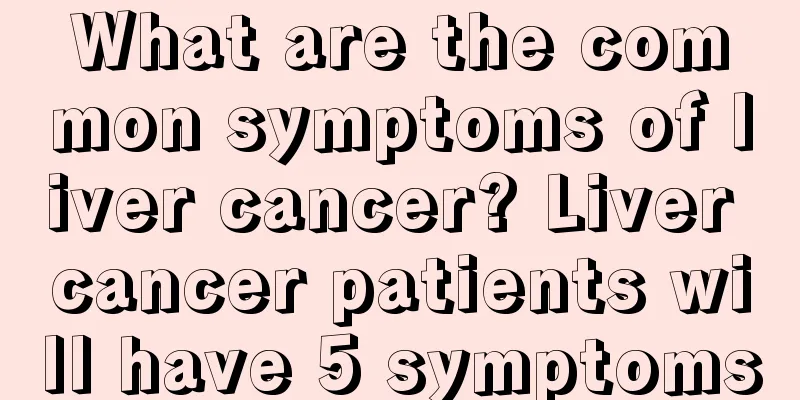What is the reason for nose bleeding due to nasopharyngeal cancer

|
What causes nose bleeding in patients with nasopharyngeal cancer? Nose bleeding is one of the symptoms of nasopharyngeal cancer, but it is not necessarily caused by nasopharyngeal cancer. It may also be caused by getting angry or other reasons. What causes nose bleeding in patients with nasopharyngeal cancer? What causes nose bleeding after nasopharyngeal cancer? What causes nose bleeding after radiotherapy for nasopharyngeal cancer? The main causes of nose bleeding after radiotherapy for nasopharyngeal carcinoma are tumor recurrence invading blood vessels and high-dose radiotherapy damaging nasopharyngeal tissue. The reasons are analyzed as follows: after high-dose radiotherapy, the nasopharyngeal mucosa is severely necrotic, tissue repair is difficult, ulcers are formed and do not heal for a long time, the main parapharyngeal blood vessels are exposed, the walls of the vessels become hard, the tumors invading the blood vessels gradually recede and disintegrate after treatment, the blood vessel walls cannot be effectively repaired and blocked, and the blood vessels rupture and cause massive bleeding. Pathological changes in the surface blood vessels of nasopharyngeal carcinoma are also the cause of bleeding. Studies have found that in most nasopharyngeal carcinoma lesions, microvessels are obviously proliferating and varicose, twisting and turning, and appearing in a ball, hairpin or spider shape. The wall thickness is uneven, the surface is superficial and fragile, and it is very easy to break and bleed. Nasopharyngeal tissue biopsy is also a direct cause of nosebleeds. Due to changes in the walls of large blood vessels caused by radiotherapy, especially hardening of the arteries and decreased elasticity; if the biopsy is not careful, the blood vessels will be directly damaged, causing the internal carotid artery to rupture and cause massive bleeding. Age and tumor stage are also closely related to nasopharyngeal carcinoma bleeding. The older the age, the more likely it is to bleed after treatment. The later the stage, the more likely it is to bleed after high-dose radiotherapy. In addition, bleeding from nasopharyngeal carcinoma is related to the morphological type of the tumor, climate, local infection, etc. Ulcers, cauliflowers, or infiltrates of nasopharyngeal tumors are prone to cause nosebleeds. The nasal cavity is dry after radiotherapy for nasopharyngeal carcinoma, and dry climates can aggravate nosebleeds. After radiotherapy, the fragility of nasopharyngeal blood vessels increases, and local infections can cause rupture of nasopharyngeal mucosal blood vessels, resulting in nosebleeds. In addition to local causes, there are also systemic causes, such as hypertension, arteriosclerosis, coagulation disorders, etc., which can cause and aggravate nosebleeds. |
<<: What causes nasopharyngeal cancer
>>: What are the causes of nasopharyngeal carcinoma
Recommend
What is the hard lump on the toe
Most of the credit for our ability to move freely...
Is it better to have smoke or smokeless moxa sticks
More and more people like to use moxa sticks for ...
What foods can prevent liver cancer? Ten foods that can effectively prevent liver cancer
When we know that various foods are very useful i...
How to distinguish bacterial infection from viral infection
Some things we think are the same, but if we look...
How long is the cleaning cycle of the range hood
Many people do not clean the range hoods in their...
How to effectively treat chapped lips
Erythromycin ointment is a common anti-inflammato...
What should you pay attention to in your diet for thyroid nodules? A reasonable diet is crucial
Thyroid nodules are a very common thyroid disease...
The skin is cracked and red like a scar
The skin is a very fragile tissue. When the weath...
What is the reason for vertical lines on nails?
Nails are generally smooth and colorful, but once...
What medicine should I take for chronic colitis and what are the treatments?
Chronic colitis is a common intestinal disease. A...
How to eat after laryngeal cancer surgery?
Surgery is the main treatment method chosen by ma...
What to do if you peed on your cotton quilt
Bedwetting is something that is inevitable for ev...
What are the causes of cervical cancer? Do I need to pay attention to sexual behavior to prevent cervical cancer?
The cause of cervical cancer (i.e. cervical cance...
Early symptoms of esophageal cancer
The early symptoms of esophageal cancer mainly in...
What are the symptoms of intestinal gas?
Intestinal flatulence can cause abdominal pain in...









